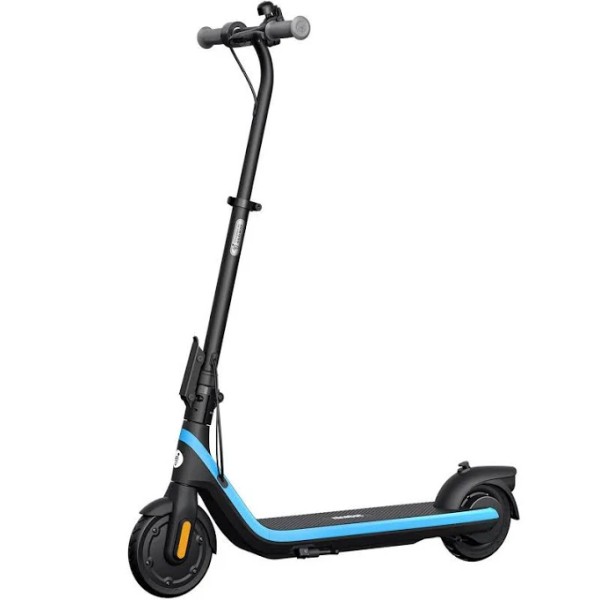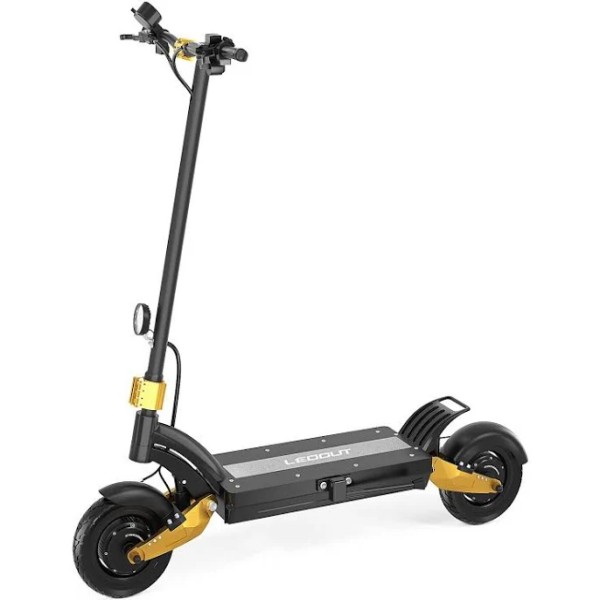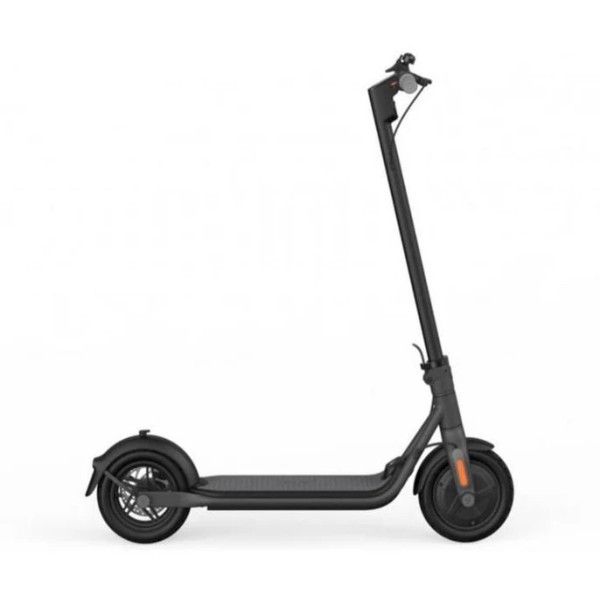Electric scooters have surged in popularity over the past few years, providing a convenient and eco-friendly mode of transportation in urban areas. They are often seen whizzing past commuters, sharing the roads and sidewalks with bicycles and pedestrians. However, as with any form of transportation, regulations and laws can vary significantly depending on the city or country. If you’re considering taking the plunge into the world of electric scooters or already own one, you may be asking yourself, “Do you need a license for an electric scooter?” Understanding the legal requirements is crucial to ensure your safety and compliance with local laws. In this article, we will dive deep into the regulations surrounding electric scooter usage, explore the conditions under which you might need a license, and provide essential tips for compliant riding.

What Are Electric Scooters?
Electric scooters, or e-scooters, are small, lightweight vehicles powered by electric motors. They are commonly designed for short-distance travel and come with two wheels, a platform for the rider to stand on, and handlebars for steering. Electric scooters can reach average speeds of 15 to 20 mph, making them not only efficient but also a fun way to get from one destination to another. As urban areas grapple with traffic congestion and pollution concerns, e-scooters offer a practical alternative to traditional vehicles.
Historically, scooters have been around for decades, but the advent of electric scooters has transformed them into a modern mobility solution. Users can typically rent e-scooters through various apps or purchase them for personal use. However, with this newfound popularity comes the necessity for regulations, especially concerning licensing, insurance, and safety know “Do you need a license for an electric scooter?”.
Regulations Surrounding Electric Scooters
When discussing whether you need a license for an electric scooter, it’s crucial to understand the broader context of e-scooter regulations. Different regions have implemented varying laws concerning their use. In some places, electric scooters are treated similarly to bicycles, while in others, they may be classified more like motor vehicles.
In the United States, for instance, regulations can differ not only by state but also by city. Some jurisdictions require riders to have a license, while others do not. Additionally, certain areas may impose restrictions on where e-scooters can operate—like bike lanes or designated paths—and what safety equipment, such as helmets, must be worn.
Across Europe, the regulation landscape varies as well. Some countries require users to register their electric scooters, while others have stricter speed limits. Understanding the laws in your area is essential for ensuring a safe and legal ride.
Understanding Different Types of Licenses
If you do determine that a license is required for riding an electric scooter in your area, it is crucial to know what type of license is applicable. Licensing requirements can often be categorized into three main types: no license required, a regular driver’s license, and a specific e-scooter or moped license.
In regions where no license is required, anyone can ride, provided they meet age requirements and adhere to safety regulations. In contrast, a regular driver’s license may be necessary in places where electric scooters share the same legal status as motor vehicles. Some jurisdictions may have specific regulations that govern the operation of e-scooters requiring users to obtain a special license, often similar to that required for mopeds.
Understanding these nuances can help you navigate the regulations effectively and avoid potential fines or penalties for non-compliance.
Age Restrictions and Other Requirements
Aside from licensing, age restrictions frequently accompany regulations governing electric scooters. Many places stipulate that riders must be a certain age to operate an e-scooter, typically ranging from 14 to 18 years. Additionally, some locations may even impose a minimum riding age of 21, particularly if a specific license or insurance is required.
In addition to age restrictions, regulations may mandate safety equipment, including helmets or reflective gear. Some jurisdictions may also require riders to take a brief safety course before obtaining a license. Therefore, before embarking on your e-scooter journey, consult local regulations to ensure you meet all requirements to “Do you need a license for an electric scooter?”.

The Importance of Insurance for E-Scooter Riders
While asking “Do you need a license for an electric scooter?” is vital, understanding insurance needs is equally important. Many regions do not require proof of insurance to ride an electric scooter, but that does not mean you shouldn’t consider it. Insurance coverage can protect you in case of an accident, damage to your scooter, or liabilities for injuries caused to others.
Though not universally mandated, having an insurance policy can provide peace of mind, especially if you plan to ride frequently or in high-traffic areas. Several companies may offer specialized insurance packages for e-scooter riders, so it’s worth exploring your options. Confirm that your policy covers personal injury, property damage, and theft to get comprehensive protection.
Safety Practices for Electric Scooter Riders
Even if you are riding legally, safety should always be a top priority. Following safe riding practices reduces the likelihood of accidents and ensures a safer experience for yourself and others sharing the road. Here are some essential safety tips:
- Always wear a helmet. It significantly reduces the risk of head injuries.
- Follow traffic laws. Observe speed limits and signal turns like a bicycle.
- Stay in designated bike lanes or paths whenever possible. This reduces the risk of colliding with pedestrians.
- Respect pedestrian zones. Avoid riding in crowded areas and dismount if necessary.
- Perform regular maintenance checks on your scooter, ensuring brakes, tires, and lights are in good working order.
By adhering to these safety practices, you not only protect yourself but also contribute to a better e-scooter riding experience for everyone.
The Future of Electric Scooters and Licensing
As electric scooters continue to gain traction as an eco-friendly, convenient transportation option, it’s likely that regulations will continue to evolve. Local governments and regulatory bodies may introduce new licensing requirements, safety guidelines, or operational regulations as they analyze data on usage patterns, safety incidents, and public sentiment.
We may see the introduction of smart technologies that enable better monitoring of e-scooter usage. Companies may implement geofencing technology, which limits where scooters can go based on local traffic regulations, or provide real-time data to riders, allowing them to better navigate roads and sidewalks. As a result, we may find regulations becoming more nuanced, adapting to advancements in technology and the changing dynamics of urban transportation.
Moreover, the push for sustainability and reduced carbon footprints may propel electric scooters into mainstream transportation paradigms, forcing cities to create designated lanes and parking zones. This growth could lead to more formal requirements regarding licensing and safety measures, owing to safety concerns and the necessity for registering scooters “Do you need a license for an electric scooter?”.
Tips for New Electric Scooter Riders
For those new to electric scooters, navigating the landscape of regulations and safety practices can be daunting. However, being prepared can ease much of that anxiety. Here are some tips to consider when starting your e-scooter journey:
- Research Local Regulations: Before you start riding, invest time in understanding the local laws governing e-scooters. Check city websites or local transportation departments for accurate information.
- Choose Quality Equipment: If purchasing an e-scooter, invest in a reliable brand that meets safety standards. Look for features like effective braking systems, strong battery life, and durable materials.
- Plan Your Routes: Familiarize yourself with the roads you plan to take. Opt for bike lanes whenever possible and avoid areas with heavy pedestrian traffic until you gain confidence.
- Connect with Other Riders: Joining local e-scooter clubs or online communities can provide invaluable insights. Learning from experienced riders can help you navigate challenges that new riders face.
- Stay Informed About Changes: Regulations around electric scooters can change. Keep an eye out for any updates to local laws that may affect your riding experience.
The Impact of E-Scooters on Urban Mobility
Electric scooters have significant implications for urban mobility, offering distinct advantages and challenges. As cities grapple with congestion and strive to promote sustainable transport options, e-scooters provide a flexible solution that can function alongside public transportation.
However, their proliferation has also led to challenges such as increased foot traffic in areas designed for vehicles and limited infrastructure to support them adequately. Responsible outright usage is essential to mitigate these challenges. Continued dialogue between local governments and community members will forge effective policies that balance convenience with safety.

Conclusion Revisited
In wrapping up this examination of the question, “Do you need a license for an electric scooter?” it’s apparent that the answer varies dramatically based on geographic location, local laws, and the ever-evolving world of urban transportation. As more people turn to e-scooters for their commuting needs, a greater understanding of regulations, licensing, safety practices, and equipment becomes essential.
By familiarizing yourself with these elements, you ensure not only your compliance but also contribute to a more harmonious relationship with fellow road users. The future of urban mobility is certainly bright, with electric scooters leading the charge towards sustainability and efficiency. So, whether you are a first-time rider or an experienced enthusiast, embrace the journey with knowledge, awareness, and an emphasis on safety. Understanding local regulations, safety practices, and the evolving landscape of e-scooters will enhance your riding experience, ensuring you remain a responsible and informed member of your community.